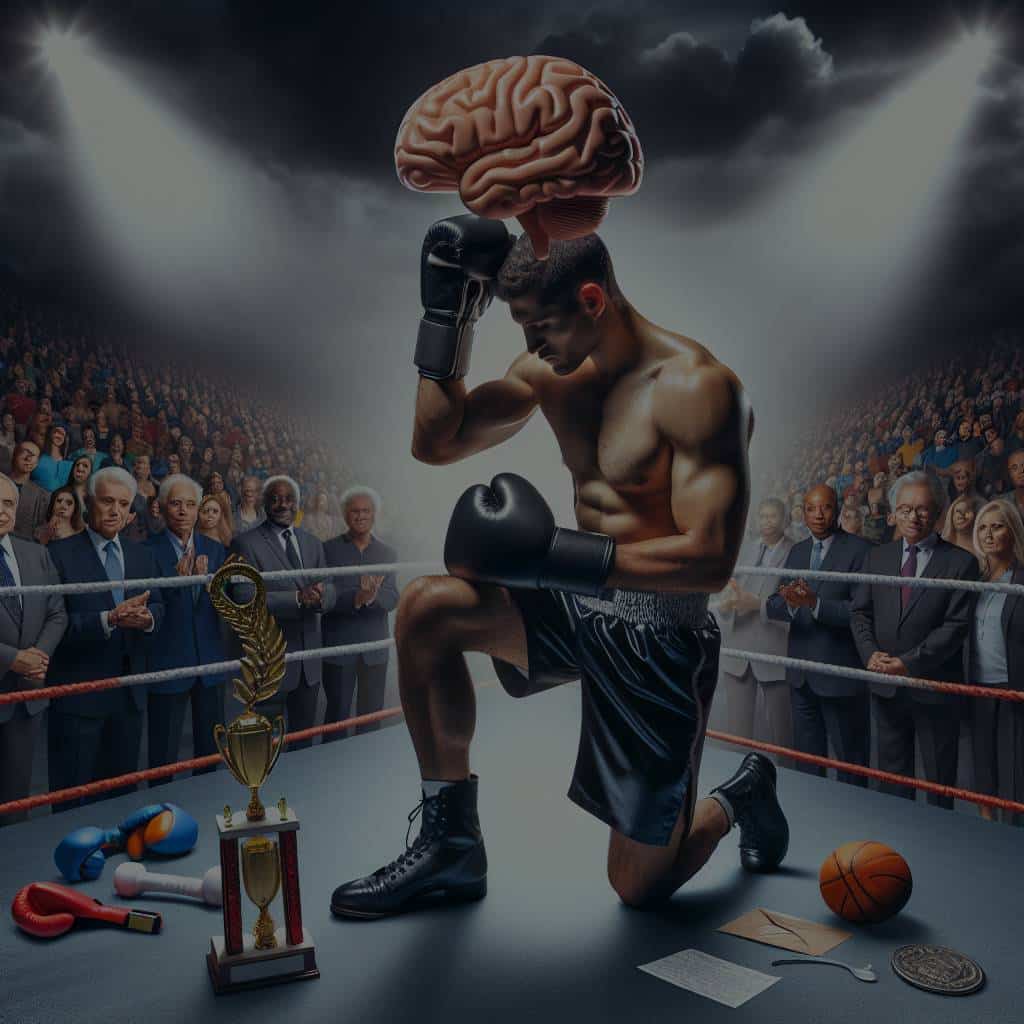How Can a Focus on Mental Health Change the Culture of Professional Boxing?

The world of professional sports, including boxing and mixed martial arts (MMA), is no stranger to the physical demands and injuries that come with high-level competition. Yet, the emphasis on the physical aspects often overshadows another crucial component – mental health. Athletes, including boxers and MMA participants, are not immune to mental health disorders, and the impact these issues can have on an athlete’s performance is significant.
However, bringing mental health into the limelight can not only transform the culture of professional boxing but also redefine the definition of an elite athlete. By addressing the mental health issues faced by athletes, we can help them lead fulfilling lives both inside and outside the ring.
Lire également : How Does Functional Electrical Stimulation Aid Recovery in Paralyzed Athletes?
Redefining the Elite Athlete: Mental Strength is Key
In the world of professional sports, the term ‘elite athlete’ is often synonymous with physical prowess and exceptional skill. But is this definition incomplete? The answer is unequivocally yes.
The traditional image of an elite athlete is one who trains tirelessly, pushes their body to the limit, and performs at the highest level. But what about their mental health? The pressure to perform, fear of injury, and the highs and lows of competitive sport can take a significant toll on an athlete’s psychological well-being.
A découvrir également : How Can Eye-Tracking Technology Improve Free-Throw Accuracy in Basketball?
Studies have shown that elite athletes are just as vulnerable to mental health disorders, such as anxiety and depression, as the general population. This reality suggests that mental health should be a key component in the definition of an elite athlete. After all, mental strength, resilience, and emotional management are just as critical to an athlete’s performance as their physical abilities.
By incorporating mental health into the definition of an elite athlete, we can change the culture of professional boxing. This shift would not only validate the experiences of those struggling with mental health issues but also ensure that athletes receive the support they need to thrive.
The Impact of Mental Health on Performance: It’s More Than Just Physical
When we think of what affects an athlete’s performance, we often focus on physical factors like strength, speed, and endurance. However, mental health plays an equally, if not more, significant role in an athlete’s ability to perform.
The pressure to win, the fear of failure, and the constant scrutiny from fans and media can lead to stress, anxiety, and depression. These mental health disorders can not only impair an athlete’s cognitive functions, such as concentration and decision-making but can also affect their motivation and enjoyment of the sport.
This reality underscores the need for mental health to be a priority in the world of professional sports, including boxing and MMA. Mental health issues can no longer be swept under the rug or seen as a sign of weakness. Instead, they need to be recognized as a legitimate concern that can significantly impact an athlete’s performance and overall well-being.
Building a Supportive Culture: Mental Health Matters
Creating an environment where mental health is valued and addressed is crucial in transforming the culture of professional boxing.
This shift requires a change in attitudes and behaviors at all levels – from coaches and trainers to athletes and fans. Instead of stigmatizing mental health issues, we need to foster an environment where athletes feel comfortable discussing their mental health struggles and seeking help when needed.
Coaches and trainers play a pivotal role in creating a supportive culture. They need to be equipped with the knowledge and resources to recognize signs of mental health disorders and refer athletes to appropriate mental health professionals. Additionally, they can help athletes develop coping strategies to manage stress and anxiety related to training and competition.
Empowering Athletes: Mental Health Resources and Education
A major part of changing the culture of professional boxing involves empowering athletes with the knowledge and resources to take care of their mental health.
Providing mental health education to athletes can help them better understand the importance of mental well-being, recognize signs of mental health disorders, and know when and how to seek help. This education could be delivered through workshops, seminars, or online modules.
In addition to education, athletes need access to mental health resources. This could include access to psychologists and therapists who specialize in sports psychology, self-help tools and resources, and mental health hotlines. Providing these resources can help athletes take proactive steps in maintaining their mental health, ultimately contributing to better performance and a healthier life outside the ring.
Developing Mental Toughness: A New Paradigm for Elite Athletes
A shift in how we define elite athletes is vital for changing the culture of professional boxing. This shift must emphasize the importance of mental health as a key component of an athlete’s overall performance. The need is clear: to not only focus on physical strength but also to recognize that mental toughness is equally, if not more, important.
The effects of mental health issues are not always visible on the surface, unlike physical injuries. However, these unseen problems often have significant impacts on an athlete’s performance that can’t be overlooked. Anxiety or depression can lead to difficulties in concentration and decision-making, decreased motivation, and decreased enjoyment of the sport. Additionally, mental health problems can affect an athlete’s ability to cope with the demanding training regimens that are a normal part of life for those in high-level sports like boxing and MMA.
Moreover, to help combat these issues, athletes need to be provided with mental health resources and education. Educating athletes about the importance of mental health can help eliminate the stigma associated with seeking help for mental health problems. Additionally, by equipping athletes with the knowledge and tools to recognize and address their mental health issues, we can foster a culture of mental toughness and resilience in professional boxing and martial arts.
In Conclusion: Changing the Culture of Professional Boxing
Changing the culture of professional boxing is not an overnight process. It requires a comprehensive approach that addresses the mental health needs of athletes at all levels. The stigma associated with mental health issues must be addressed, and a proactive approach to mental health management must be encouraged.
By redefining the concept of an elite athlete to include mental strength, we can create a new paradigm in professional boxing. One where mental health is valued just as much as physical prowess. This shift will not only benefit the athletes who are struggling with mental health issues but will also enhance the overall quality of the sport.
Furthermore, the benefits of this change in culture will extend beyond the ring. By creating an environment where mental health is valued, professional boxing can become a beacon of change for the wider sports world. This transformation will not only create healthier athletes but will also create a healthier society that recognizes and values mental health in the same way as physical health.
Cultivating a culture that prioritizes mental health will empower athletes to seek help when they need it, encouraging them to be proactive in managing their mental well-being. In the end, the focus on mental health will not only change the culture of professional boxing but potentially redefine the world of professional sports as a whole.
So, whether it’s boxing, Brazilian jiu-jitsu, or any other form of martial arts, the need of the hour is to foster an environment that values mental health. Let’s not forget, our minds and bodies work in harmony, and both need to be in optimal condition for us to truly be considered elite athletes.
